
Exposé Online
What's old
Exposé print issues (1993-2011)
- 1 (October 1993)
- 2 (February 1994)
- 3 (May 1994)
- 4 (August 1994)
- 5 (October 1994)
- 6 (March 1995)
- 7 (July 1995)
- 8 (November 1995)
- 9 (March 1996)
- 10 (August 1996)
- 11 (February 1997)
- 12 (May 1997)
- 13 (October 1997)
- 14 (February 1998)
- 15 (July 1998)
- 16 (January 1999)
- 17 (April 1999)
- 18 (November 1999)
- 19 (May 2000)
- 20 (October 2000)
- 21 (March 2001)
- 22 (July 2001)
- 23 (December 2001)
- 24 (April 2002)
- 25 (September 2002)
- 26 (February 2003)
- 27 (August 2003)
- 28 (December 2003)
- 29 (April 2004)
- 30 (September 2004)
- 31 (March 2005)
- 32 (September 2005)
- 33 (May 2006)
- 34 (March 2007)
- 35 (January 2008)
- 36 (October 2008)
- 37 (July 2009)
- 38 (July 2010)
- 39 (Summer 2011)
Features
Shooting at the Moon —
The Moonjune Interview

Leonardo Pavkovic has been a supporter of progressive rock and jazz for over 25 years. Beginning as a label rep in New York City, he eventually became the founder of the one of the last true American-based labels supporting diverse international artists and music across the globe. Pavkovic has a passion for Indonesian music, which has been his label’s focus for the last few years.
by Jeff Melton, Published 2015-01-29
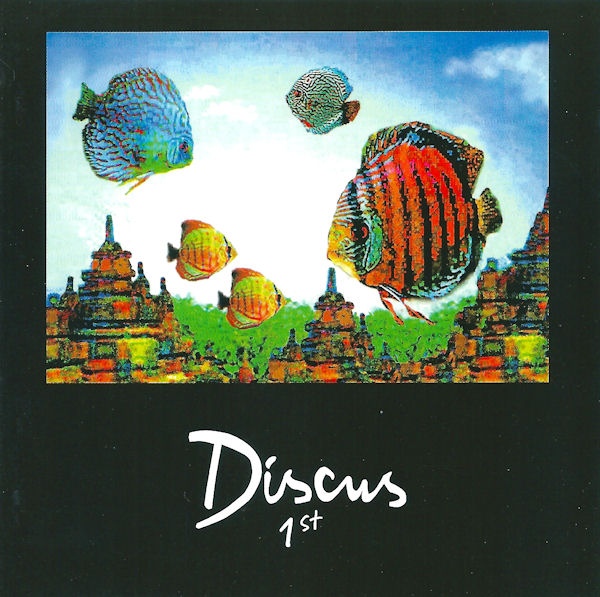 Can you tell me about the Indonesian artists on your label? It’s a pretty deep roster you have specifically with bands from Jakarta. Did you meet most of the musicians because you vacationed to Indonesia?
Can you tell me about the Indonesian artists on your label? It’s a pretty deep roster you have specifically with bands from Jakarta. Did you meet most of the musicians because you vacationed to Indonesia?
I’m a world traveler and from the age of 15 or 16 when I lived in Italy I always wanted to go to Indonesia, I always had fascination for exotic and distant countries. In late 1999 I was in touch with a guy from a progressive rock distribution company in Italy from whom I occasionally bought CDs. One day he said, “Look, there’s an Indonesian band Discus that's released a progressive rock album and I think you will like it because you like Frank Zappa and Mahavishnu.” Once I received the CD, and noting a couple of contact email addresses on that CD booklet, because I’m that kind of curious person, I wrote to the record label contact and to Iwan Hasan, the guitar player. Both of them answered really quickly. Several months later, in early 2000, they said that they were coming to the US, and asked me to find them a gig in New York, because they would be performing few minor prog festivals in California and North Carolina. I managed to book them at the famous NYC's institution Knitting Factory. We met first at Prog Day and a few days later they came to New York and we had chance to spend some time together. Their sound engineer was Riza Arshad. Although I became really good friends with everybody in the band, I really got on well with Riza.
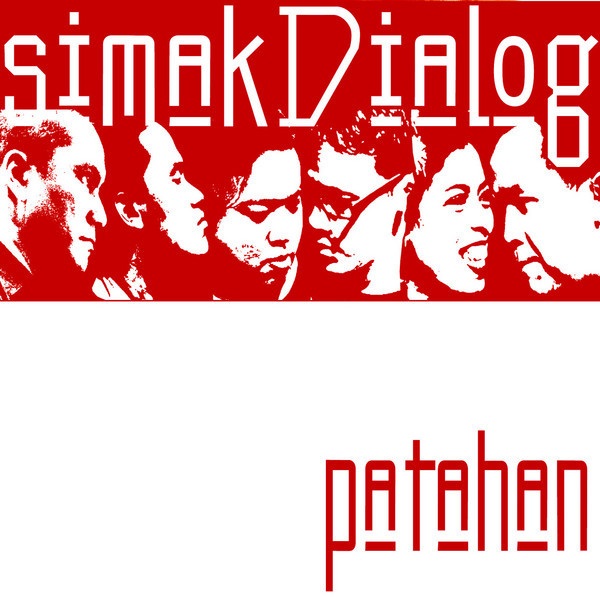 When I went to Indonesia for the first time in 2003, partly for vacation and partly to explore the possibilities for making some bookings, Riza was one of the first guys I met and he told me that he had a band called SimakDialog, and he gave me a copy of their third album, Trance Mission, which I instantly loved. This was the first album of theirs to use Indonesian percussion instruments instead of a drummer. On one of my next trips to Indonesia, Riza gave me a copy of their fourth album, Patahan, which was a live recording to be released locally. I was completely and totally blown by the quality of that live performance that I decided to release the album in 2007. And still is one of my all-time favorite albums on my label. Riza Arshad is part of the golden generation of top Indonesian musicians that includes also the guitarist Dewa Budjana and two keyboardists, Dwiki Darmawan and Indra Lesmana. They are link between the past and the future and they have influenced a vast array of younger musicians in their country. They grew up with jazz, fusion, prog, and avant-garde music, which is not mainstream music. However, they became very successful composing music for movies and television, composing arrangements and conducting orchestras and engineering hit pop songs, and leading highly successful pop-rock band of national fame.
When I went to Indonesia for the first time in 2003, partly for vacation and partly to explore the possibilities for making some bookings, Riza was one of the first guys I met and he told me that he had a band called SimakDialog, and he gave me a copy of their third album, Trance Mission, which I instantly loved. This was the first album of theirs to use Indonesian percussion instruments instead of a drummer. On one of my next trips to Indonesia, Riza gave me a copy of their fourth album, Patahan, which was a live recording to be released locally. I was completely and totally blown by the quality of that live performance that I decided to release the album in 2007. And still is one of my all-time favorite albums on my label. Riza Arshad is part of the golden generation of top Indonesian musicians that includes also the guitarist Dewa Budjana and two keyboardists, Dwiki Darmawan and Indra Lesmana. They are link between the past and the future and they have influenced a vast array of younger musicians in their country. They grew up with jazz, fusion, prog, and avant-garde music, which is not mainstream music. However, they became very successful composing music for movies and television, composing arrangements and conducting orchestras and engineering hit pop songs, and leading highly successful pop-rock band of national fame.
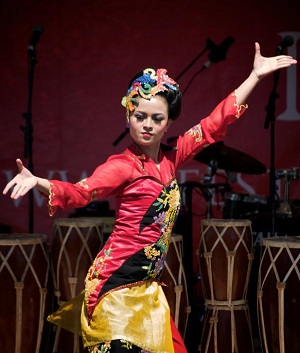 To be noted also that Indonesia also has a very long tradition in accepting foreign music. I will say easily that in all of Asia, Indonesia is the second most informed country, after Japan, in terms of foreign music. What happened is that Indonesia was always sort of a liberal, open-minded country, probably that’s the Dutch influence (Dutch stayed in Indonesia until 1945 when Indonesia became an independent country). Also worth noting that the first president Sukarno (1945-1967) banned western music, so new music genres (e.g. Jaipongan) were created. Suharto, his successor (1967-1998) opened up the country to Western oil companies and so there came an influx of expats with their own music tastes, and these were a major influence, as, no doubt, were those Indonesian intellectuals who went abroad to study, and many of them they were bringing albums of Pink Floyd, Deep Purple, The Doors, Led Zeppelin and other bands to their country in late 60s and early 70s, playing them for friends or even playing them at University radio stations and in those days Indonesia had also several rock magazines, which hugely influenced a part of the Indonesian youth.
To be noted also that Indonesia also has a very long tradition in accepting foreign music. I will say easily that in all of Asia, Indonesia is the second most informed country, after Japan, in terms of foreign music. What happened is that Indonesia was always sort of a liberal, open-minded country, probably that’s the Dutch influence (Dutch stayed in Indonesia until 1945 when Indonesia became an independent country). Also worth noting that the first president Sukarno (1945-1967) banned western music, so new music genres (e.g. Jaipongan) were created. Suharto, his successor (1967-1998) opened up the country to Western oil companies and so there came an influx of expats with their own music tastes, and these were a major influence, as, no doubt, were those Indonesian intellectuals who went abroad to study, and many of them they were bringing albums of Pink Floyd, Deep Purple, The Doors, Led Zeppelin and other bands to their country in late 60s and early 70s, playing them for friends or even playing them at University radio stations and in those days Indonesia had also several rock magazines, which hugely influenced a part of the Indonesian youth.
Suharto was a dictator who imposed strict censorship, but despite all, the underground music scene in Indonesia was flourishing. When I lived in Italy, as a fan of Deep Purple, I read somewhere that Deep Purple with Tommy Bolin had played Indonesia in 1975 and that the stadium was overcrowded and there were some incidents as well, which led me to explore more about the subject but in those days, with no internet, it was virtually impossible to know more. Deep Purple's concert was a historic moment in the history of Indonesian rock, the first international rock show ever, and they had 100,000 people at the gig and the capacity was 75-80,000.
Oh, so that’s after the Blackmore era of the band?
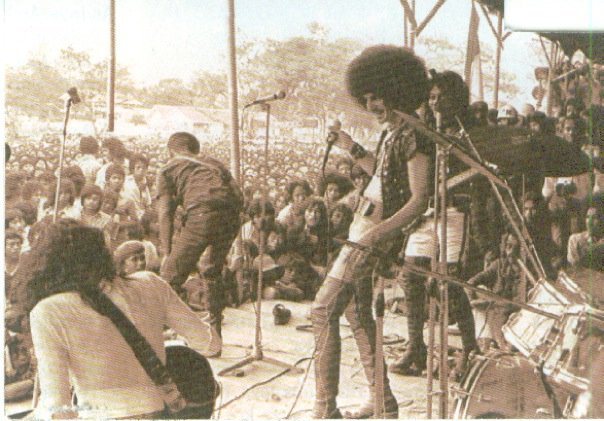 Yeah, and I also read that a local Indonesian band called God Bless opened the show. Their name stayed in my mind and a few years later I found a 1980 LP by God Bless in a record shop in Rome. God Bless was a proggy hard rock in the vein of Trapeze (with Glenn Hughes) and Deep Purple. (It was) typically mid-70s, but very good. In the same store, I also found a cassette of Guruh Gypsy’s only album. They were slightly different; kind of Mahavishnu Orchestra meets gamelan. I was never able to find any other LPs of Indonesian music, and in those days, without the internet, there was no way to research the genre.
Yeah, and I also read that a local Indonesian band called God Bless opened the show. Their name stayed in my mind and a few years later I found a 1980 LP by God Bless in a record shop in Rome. God Bless was a proggy hard rock in the vein of Trapeze (with Glenn Hughes) and Deep Purple. (It was) typically mid-70s, but very good. In the same store, I also found a cassette of Guruh Gypsy’s only album. They were slightly different; kind of Mahavishnu Orchestra meets gamelan. I was never able to find any other LPs of Indonesian music, and in those days, without the internet, there was no way to research the genre.
So from 1986, or '87, until I met Discus I only had two albums of Indonesian bands, and I thought of them as an upgraded version of Guruh Gypsy, and the first modern Indonesian band that I knew about. How ironic it was! A great thing happened during my first trip to Indonesia, I met the promoter of that 1975 Deep Purple show, Peter Basuki, who I believe was also the manager of the of the legendary local band that was the opener, God Bless. Maybe not so many people know this, but Indonesia had an amazing prog-rock and psychedelic rock scene in early to mid-70s, mostly in the major cities of Jakarta, Surabaya, Bandung and Jogjakarta. It's worth exploring the music of bands and artists such as Giant Step, Sharkmove, God Bless, Abbhama, Guruh Gypsy, Ariesta Birawa Group, Aka, Rollies, Benny Soebardja and many others.
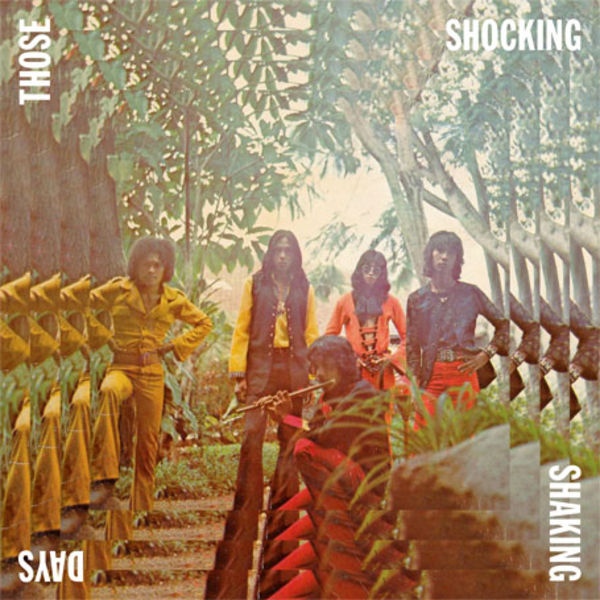 Now Again, an American label from California has released in 2011 an amazing compilation (digital, CD, and LP) called: Those Shocking Shaking Days: Indonesian Hard, Psychedelic, Progressive Rock and Funk: 1970-1978. I suggest this album to everyone interested in exploring some new old sounds, and it's wildly available on the Amazon and on iTunes. The progressive music scenes in 70s Indonesia were largely underground as a result of strict censorship imposed by the dictator Suharto. Those who performed music marked by a relentless fuzz tone, over the top, politically charged lyrics, strong rhythms and a cranky low-fidelity were truly rebellious. And the resulting output has been largely – outside of the confines of this island nation – unheard or ignored. Indonesia, based in large part on the restrictions imposed by Suharto, is better known for the coffee it exports than the music it creates.
Now Again, an American label from California has released in 2011 an amazing compilation (digital, CD, and LP) called: Those Shocking Shaking Days: Indonesian Hard, Psychedelic, Progressive Rock and Funk: 1970-1978. I suggest this album to everyone interested in exploring some new old sounds, and it's wildly available on the Amazon and on iTunes. The progressive music scenes in 70s Indonesia were largely underground as a result of strict censorship imposed by the dictator Suharto. Those who performed music marked by a relentless fuzz tone, over the top, politically charged lyrics, strong rhythms and a cranky low-fidelity were truly rebellious. And the resulting output has been largely – outside of the confines of this island nation – unheard or ignored. Indonesia, based in large part on the restrictions imposed by Suharto, is better known for the coffee it exports than the music it creates.
I learned a lot about the Indonesian 70s bands from the local journalist and music historian, Dennie Sakrie, who was probably the most knowledgeable guy in the whole country when it comes to the music not just local, but international: rock, blues, prog, fusion, jazz, reggae, anything. Sakrie was a living encyclopedia. And also he was the most knowledgeable guy on Indonesian music and he was finishing a book on Indonesian pop and rock in the 70s. (Unfortunately Dennie died suddenly of a heart attack on January 3rd 2015, and we were working on some projects together – this is a tremendous loss for the Indonesian music community.)
Thanks to the internet, you can find almost all those great bands on YouTube, and only few of those bands were able to see their albums re-mastered and repackaged in the CD format. I’ve heard that many original masters were lost or destroyed, for whatever reason.
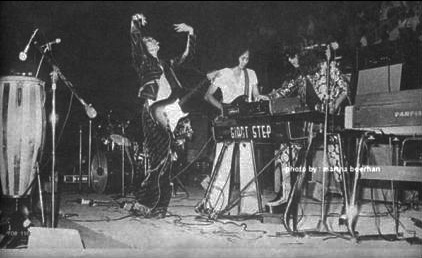 All those 70s rock heroes, like Benny Soebarja (of Giant Step and Sharkmove) have influenced the musicians from the 90s. There would be no Tohpatis or the Budjanas of today without those 70s underground rock heroes.
All those 70s rock heroes, like Benny Soebarja (of Giant Step and Sharkmove) have influenced the musicians from the 90s. There would be no Tohpatis or the Budjanas of today without those 70s underground rock heroes.
Yeah, that's good that you've come along and cornered the market internationally. There isn’t any other label that’s showcasing artists merging progressive rock and jazz artists with gamelan and other Indonesian traditional music.
There are so many artists in Indonesia, you cannot believe how many. If I had time and resources I would be able to release maybe 20 to 30 albums every year. As I said, in the last five to ten years there’s been simply a boom of young musicians playing quality music... it’s unbelievable. Most of them have to support themselves working in pop, rock, folk, and mainstream music. But in their spare time they have a passion for jazz, fusion, and prog. I’m always glad to hear that.
Tohpati is one of the most in-demand session players in the country because he can play any kind of music, pop, folk, smooth jazz, whatever. He has released a couple of pop records, but he’s primarily a session player. His bass player, Indro Hardjodikoro, is also the busiest bass player in Indonesia. That guy records maybe dozens of albums a year; I guess he’s working every day! If you need the bass you call Indro. All those guys are heavy session men; they’re living for the music.
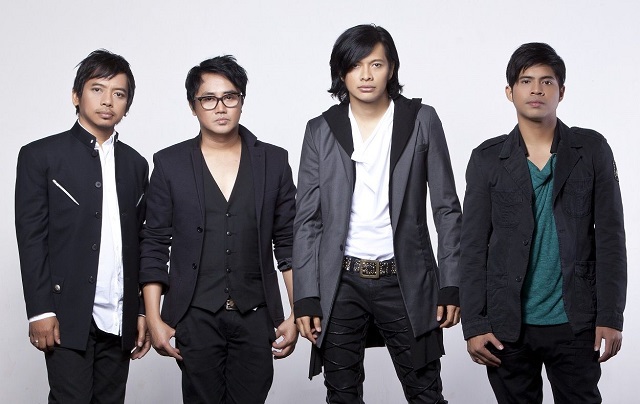 Dewa Budjana is the most famous guitar player in Indonesia, because he makes his living as the leader of the band Gigi which sells lots of records; their most recent album was recorded at the famous Abbey Road studio in London. But if you see him play progressive rock, jazz, fusion, he is influenced by McLaughlin, Holdsworth, Coltrane, and Metheny. You can tell from just his style of playing that he pulls from a lot of varied sources. Today he could be on MTV, and playing for 10 thousand people or 20 thousand people in a stadium. Tomorrow he could be playing for 40 or 50 people in a little jazz club in Jakarta called the Red and White Lounge owned by Indra Lesman.
Dewa Budjana is the most famous guitar player in Indonesia, because he makes his living as the leader of the band Gigi which sells lots of records; their most recent album was recorded at the famous Abbey Road studio in London. But if you see him play progressive rock, jazz, fusion, he is influenced by McLaughlin, Holdsworth, Coltrane, and Metheny. You can tell from just his style of playing that he pulls from a lot of varied sources. Today he could be on MTV, and playing for 10 thousand people or 20 thousand people in a stadium. Tomorrow he could be playing for 40 or 50 people in a little jazz club in Jakarta called the Red and White Lounge owned by Indra Lesman.
Wow, that’s quite a contrast!
A famous musician in the USA or England would not play one gig for a big audience and the next day go to a little pub. But in Indonesia what is interesting is the three top guys in Indonesian music business don’t mind at all going to a little club and playing for very few people.
 Well, they’re doing what they want, right? And they’re also able to have some balance in their lives.
Well, they’re doing what they want, right? And they’re also able to have some balance in their lives.
It’s a cultural difference, because in the West we suffer from prejudices. It doesn’t matter if you’ve entertained 10,000 people or just five, you’re still entertaining them. They don’t suffer from stardom and being famous, they’re just regular guys. And this is the kind of the beauty of Indonesia, you meet these famous guys and they can sit in a hotel lobby or a little restaurant just like the rest of us.
So the music you release on your label is what they want to do, rather than what they play as pop stars?
Yeah. Unfortunately I cannot release as many albums as I'd really like to. If I had enough resources and time and we lived in a different era, I’d be releasing 20-30 albums a year, just from Indonesia. But I cannot, and each one is a little sacrifice because this music doesn’t sell.
 But the artistic quality is extremely high.
But the artistic quality is extremely high.
True, but it doesn’t sell because they’re not touring musicians outside Indonesia. They're from a distant country, so few know of them. And in today’s world, if you are not a known name or you’re not touring, you cannot sell records. You can have the best record in the world, but it still won't sell.
The one thing that MoonJune has going for itself is its international name recognition for certain kinds of music.
Yeah, because I send promos to 45 different countries, something very few labels do. And even though I’m a very small, my indie label is dedicated to niche music. I have worldwide recognition, which is due as a combination of my labels' reputation, my booking activities with well-known jazz, fusion and prog artists, and my other associations in the music business.
Copy-editorial assistance provided by Regan Crisp; header photo by Gary Husband.
Filed under: Interviews
Related artist(s): Dewa Budjana, SimakDialog, Tohpati, Tesla Manaf, Discus, God Bless
What's new
These are the most recent changes made to artists, releases, and articles.
- Release: Thierry Zaboitzeff - Artefacts
Updated 2026-02-27 00:16:46 - Review: Kevin Kastning - Codex I & Codex II
Published 2026-02-27 - Release: Zan Zone - The Rock Is Still Rollin'
Updated 2026-02-26 23:26:09 - Release: The Leemoo Gang - A Family Business
Updated 2026-02-26 23:07:29 - Release: Ciolkowska - Bomba Nastoyashchego
Updated 2026-02-26 13:08:55 - Review: Immensity Crumb - Chamber Music for Sleeping Giants
Published 2026-02-26 - Release: The Gatekeepers - Diary of a Teenage Prophet
Updated 2026-02-25 15:55:58 - Review: Mars Lasar - Grand Canyon
Published 2026-02-25 - Listen and discover: Mordecai Smyth will not break your back
Published 2026-02-25 - Release: Tashi Wada - What Is Not Strange?
Updated 2026-02-24 14:56:16 - Artist: Tashi Wada
Updated 2026-02-24 14:54:34 - Release: Greg Segal - Maintain!
Updated 2026-02-24 00:38:03 - Review: Il Segno del Comando - Sublimazione - Live
Published 2026-02-24 - Review: Nektar - Mission to Mars & Fortyfied
Published 2026-02-23 - Review: Jaime Rosas - Tres Piezas de Rock Progresivo
Published 2026-02-22 - Release: Kevin Kastning & Bruno Råberg - Across Tall Rain
Updated 2026-02-21 00:42:08 - Review: Gary Husband - Postcards from the Past
Published 2026-02-21 - Release: Daniel Crommie - Februa
Updated 2026-02-20 14:23:17
